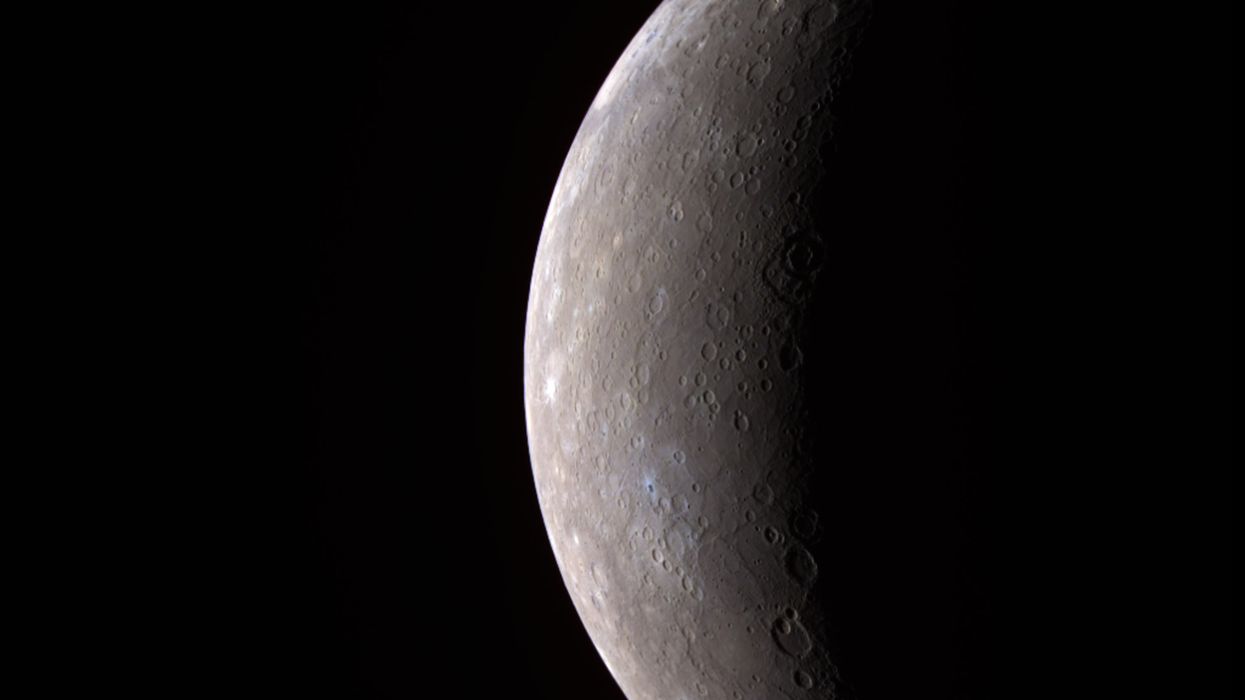Alex Daniel
Jan 06, 2024

The planet Mercury, from the Messenger spacecraft
NASA/Johns Hopkins University Applied Physics Laboratory/Carnegie Institution of Washington via Getty Images
Mercury is the planet closest to the Sun and can reach temperatures of 430 degrees Celsius. On paper, it could scarcely be more different to Earth.
But one of the most influential substances in shaping the scorching planet is also commonly found on your kitchen table: salt.
It turns out salt has been reshuffling the planet's landscape over the last few billion years, and could even flow into giant glaciers on the surface.
A new paper in Planetary Science Journal goes against a long-running theory that Mercury's terrain was shaped by volcanic movement within the planet.
Instead, it suggests that "volatile-driven resurfacing on Mercury has been one of the major engines in the evolution of the landscape".
This is significant because researchers didn't even realise Mercury could harbour such salts until recently.
It is so close to the sun that scientists thought it would either bake off or be stripped off by solar wind.
But NASA's Messenger spacecraft got close enough to Mercury in 2010 that it picked out the signs of salts on the surface.
The new paper suggests that it has somehow stockpiled huge amounts of the compound, and that it could be responsible for carving out the characteristic glaciers and huge hills and plateaus on the surface.
Their reasoning centres partly around the presence of small impact craters as well as the larger geological features.
If volcanic eruptions had formed the landscape, they would surely have erased many of those craters, the researchers posit.
David Rothery, a planetary scientist at the Open University, told ScienceNews: "It all fits the pattern: Mercury is surprisingly rich in volatiles, and we have yet to understand the limits of what the volatiles are able to do to Mercury’s landscape."
How to join the indy100's free WhatsApp channel
Sign up to our free indy100 weekly newsletter
Have your say in our news democracy. Click the upvote icon at the top of the page to help raise this article through the indy100 rankings.
Top 100
The Conversation (0)













